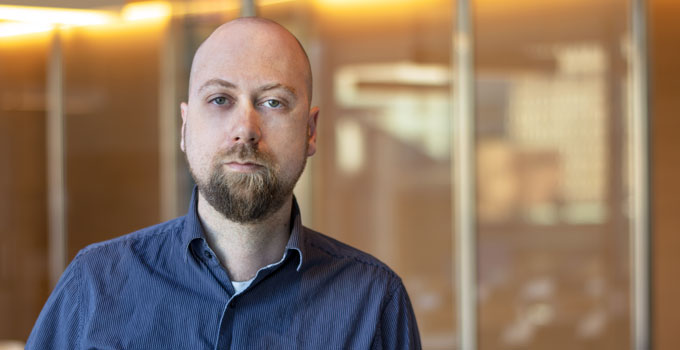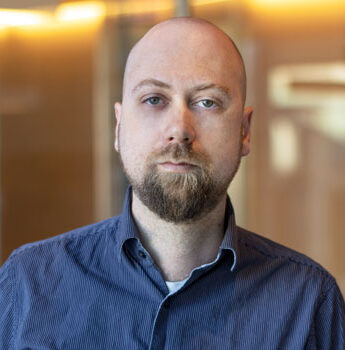
OICR is proud to welcome Dr. Sagi Abelson to its Computational Biology Program as a Principal Investigator. Here, Abelson discusses some of his past successes, including his recent leukemia research and his wide range of research interests.
How have you been involved with OICR in the past?
I came to Toronto and joined Dr. John Dick’s lab at the Princess Margaret Cancer Centre as a Postdoctoral Fellow, where I had the opportunity to work with OICR’s Genomics and Genome Sequence Informatics teams. I was investigating the differences between normal aging cells and the cells that lead to leukemia. To do that, we had to look into blood-derived DNA samples from many individuals that develop leukemia following blood collection and search for common genetic markers that indicated a high risk of developing leukemia. I worked closely with OICR teams to prepare and sequence these patient samples. We also collaborated to deploy specialized methodology that enabled us to accurately interpret the genomic data and to identify those harmful mutations.
What motivated you to become involved with that subject?
Far too many patients are diagnosed with leukemia when it is too late. This applies to many other cancers as well. If we can detect a disease earlier, we may benefit from a larger window of opportunity to prevent, manage, or treat the disease. There are many biological and computational challenges that need to be addressed in this area, including finding extremely small traces of a disease amidst a lot of noise in genomic data. I’m interested in the development and the optimization of methods and computational tools to find these first traces of a developing disease.
What will your future research focus on?
In the future I would like to expand my research program to other types of cancers. I truly believe that as a researcher I can achieve more by having a multidisciplinary team that address questions in other biological systems as well. In this era of big data, we are not the only ones realizing that multiple research skills are necessary to tackle the toughest problems. Research institutes and universities understand it as well and therefore introduced computational courses in their biology curricula. That said, conducting research is a team effort and collaboration is the key to approaching scientific problems in areas where you don’t have the expertise.
When approaching the end of your postdoctoral studies and deciding the next step in your career, what opportunities were you considering?
Well, I was looking for a combination of things. I was looking for a place that shares the same vision as I do, the same values of collaboration and translation and a place that has a high caliber of scientists. I believe in the things that OICR works on and how research is done here, so I think it’s a great fit.
What advice would you give to aspiring academics?
To do research well, you first need to love it. You need to be curious, know to identify the needs and ask the right question at the right time. Furthermore, you have to have persistence. You cannot give up in the pursuit of new knowledge.

